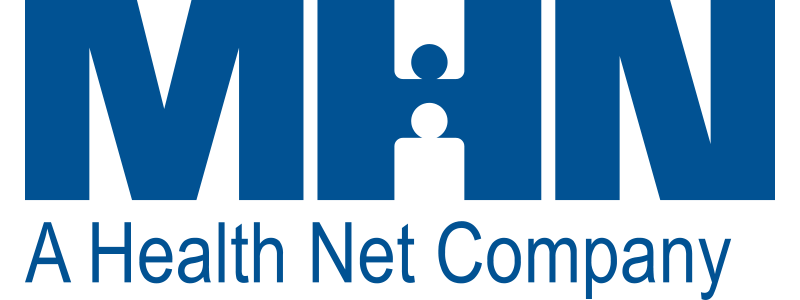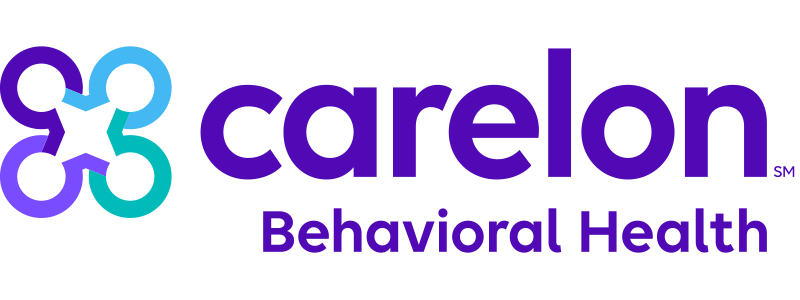Detox Centers Sacramento
The Importance of Professional Detox Centers
When it comes to addressing substance abuse issues, Detox Centers Sacramento play a pivotal role. The complexity of addiction requires a professional approach to detoxification. Many individuals underestimate the physical and psychological challenges faced during the detox process. Without expert supervision, withdrawal symptoms can escalate into critical medical emergencies.
Detox centers provide medically supervised environments where patients receive continuous monitoring. The 24/7 access to medical professionals ensures that any adverse reactions are promptly addressed, significantly reducing the risk of complications. These centers are equipped with the necessary resources and expertise to provide safe and effective detoxification.
Besides physical safety, detox centers also offer emotional support. The challenging detox phase can cause emotional upheaval; professional staff understand this and provide necessary psychological assistance. Patients are supported through counseling sessions, enhancing their resilience and ability to cope with withdrawal symptoms.
Why Detox Centers Sacramento Stand Out
Sacramento is home to a diverse array of detoxification facilities that cater to varied needs of individuals battling substance use disorders. What sets Detox Centers Sacramento apart is their holistic approach to healing. Beyond addressing the immediate need for detoxification, these centers offer comprehensive programs that support long-term recovery.
The emphasis on personalized treatment is another hallmark of Sacramento’s detox centers. Each patient undergoes a thorough assessment to tailor programs that meet their unique needs. The individualized care plans ensure that treatment not only targets the addiction but also any co-occurring mental health conditions, such as anxiety or depression.
Moreover, these centers prioritize creating a serene environment conducive to healing. Recognizing that recovery extends beyond the absence of substances, Sacramento detox facilities integrate nature and mindfulness into their treatments. Such strategies help patients reconnect with themselves, fostering holistic well-being and encouraging sustainable recovery.
Expert Insights on the Detox Process
From my experience working with addiction recovery professionals, I’ve learned that the detox process is highly individualized. Each person’s journey through detoxification is influenced by multiple factors, such as the type of substance, the length of addiction, and their overall health.
Medical teams often employ a range of medicines to alleviate withdrawal symptoms, making detox more manageable. For example, medications like methadone and buprenorphine are used to treat opioid withdrawal, showcasing the tailored medical interventions available at professional detox centers.
Furthermore, detox is only the first step in the recovery journey. It’s crucial to have a continuum of care that seamlessly transitions clients from detox to further treatment, embedding them within a supportive network that caters to their evolving needs as they progress in their recovery.
With knowledge and empathy, professionals share their experiences to educate patients and their loved ones about the nuances of addiction. This guidance is vital for setting realistic expectations and fostering a supportive environment for the person undergoing detox.
Holistic Therapies in Detox Centers
One of the less conventional yet highly effective approaches in Detox Centers Sacramento is the integration of holistic therapies. These therapies complement traditional medical treatments and enhance the overall recovery experience.
Practices such as yoga, meditation, and art therapy are employed to provide patients with a non-verbal outlet for expressing emotions. They not only relieve stress but also promote emotional clarity, helping patients reconnect with their inner selves.
Personal anecdotes from patients often highlight the transformative power of holistic therapies. Many report a newfound sense of peace and clarity, which they attribute to these holistic methods. Such outcomes illustrate the importance of these therapies in nurturing a meaningful recovery journey.
Personalized Care in Recovery
Every individual’s path to recovery is unique, necessitating personalized care plans. At Detox Centers Sacramento, personalized care is not merely a concept but a foundational element of treatment. By considering the entire person, rather than just the addiction, these centers craft recovery plans that resonate deeply with each patient.
This personalized approach involves extensive screening to identify specific needs and challenges. Tailored interventions address co-occurring disorders, making treatment more effective. A focus on mental health ensures that underlying issues contributing to addiction are not overlooked.
Anecdotal evidence from past clients underscores the effectiveness of personalized care. Testimonies frequently cite the deep connection formed with therapists and the genuine understanding received as critical components of successful recovery. Such connections foster a sense of belonging and motivate individuals to remain engaged in their treatment.
Impactful Aftercare Programs
Aftercare is a crucial component of any successful treatment program. Detox alone does not guarantee long-term recovery, which is why Detox Centers Sacramento invest significantly in aftercare programs to support clients beyond initial treatment phases.
These programs provide ongoing support, encouraging patients to maintain sobriety and continue personal growth. With features like alumni gatherings, group therapy sessions, and ongoing individual counseling, patients have access to continuous resources even after leaving the facility.
John B., a former client, shared how aftercare at Sacramento Wellness was instrumental in his sustained recovery. He mentioned that the supportive network and regular check-ins offered an essential safety net, allowing him to navigate real-world challenges independently.
The structured nature of aftercare programs also provides accountability, which is crucial in preventing relapse. By staying engaged, participants develop resilience and confidence in their ability to maintain sobriety.
Insurance and Accessibility
The financial aspect of accessing detox services can be daunting for many. However, Detox Centers Sacramento work diligently to make services accessible. Most centers accept various insurance plans, including popular providers, significantly reducing financial barriers to entry.
Sacramento Wellness, for example, offers assistance in verifying insurance coverage to minimize delays and expedite admittance processes. This proactive approach ensures that financial considerations do not hinder access to necessary care.
In addition to insurance, centers often provide flexible payment plans for those without coverage. This inclusivity is vital for reaching as many individuals in need as possible, ensuring that everyone has the opportunity to embark on the path to recovery.
The Social Impact of Detox Centers
Beyond individual recovery, detox centers have a broader social impact. By helping individuals regain control over their lives, these centers contribute to healthier communities. The ripple effect of one person overcoming addiction extends to families, workplaces, and society as a whole.
Recovering individuals often become advocates for change, sharing their stories and inspiring others. This creates a culture of awareness and understanding around addiction, reducing stigma and encouraging more people to seek help.
Exploring Future Options in Addiction Treatment
As addiction treatment evolves, Detox Centers Sacramento remain at the forefront of innovative approaches. Emerging treatments like neurofeedback and virtual reality therapy offer promising results and continue to spark interest among professionals.
There is also a growing emphasis on incorporating technology into recovery programs. From mobile apps that offer real-time support to virtual support groups, technology is set to play a significant role in making treatment more accessible and engaging.
Professionals in the field are constantly exploring these new frontiers, keen on enhancing the effectiveness and reach of current treatment modalities. Such exploration ensures that addiction treatment remains dynamic and adaptive, meeting the ever-changing needs of patients.
What are the key benefits of choosing a professional detox center?
Choosing a professional detox center provides crucial benefits like 24/7 medical supervision, which ensures any withdrawal symptoms are managed promptly and safely. The presence of experienced professionals who can tailor medical interventions is pivotal for those experiencing severe addiction symptoms. Additionally, these centers provide emotional and psychological support to help individuals cope with the challenges that arise during detox. This comprehensive approach not only safeguards physical health but also enhances emotional well-being, fostering a more effective recovery pathway.
Why do detox centers in Sacramento stand out compared to others?
Detox centers in Sacramento are renowned for their holistic approach to treatment. They emphasize a balance between traditional medical interventions and innovative holistic therapies, such as yoga and mindfulness, which help in reducing stress and promoting emotional clarity. The personalized care plans offered here ensure that treatment is highly tailored to each individual’s needs, addressing co-occurring mental health conditions alongside addiction. This focus on personalized and holistic care creates a nurturing environment that encourages sustainable, long-term recovery.
Can you explain the detox process and what makes it effective?
The detox process is a critical first step in addiction recovery, involving the elimination of substances from the body. What makes it effective is the individualized approach taken at professional detox centers. Factors like the specific substance, duration of use, and the individual’s health condition are considered to tailor medical interventions, such as the use of methadone for opioid withdrawal. By addressing withdrawal symptoms and providing a continuum of care, these centers set the groundwork for a successful recovery journey. It’s important to remember that detox is just the beginning, and continued support is essential for maintaining sobriety.
How do holistic therapies contribute to the recovery process in detox centers?
Holistic therapies offer a unique contribution to the recovery process by addressing the emotional and mental aspects of addiction. Practices such as meditation, yoga, and art therapy provide patients with creative and meditative outlets that relieve stress and enhance emotional awareness. Many individuals find these therapies transformative, as they help them reconnect with their inner selves and foster a sense of peace and clarity. By integrating these methods with traditional treatment, detox centers create a comprehensive recovery environment that nurtures the whole person.
What role does personalized care play in addiction recovery?
Personalized care is pivotal in addiction recovery because it acknowledges that every individual’s journey is unique. By conducting thorough assessments, detox centers can design treatment plans that cater specifically to an individual’s needs, including any co-occurring mental health conditions. This tailored approach not only makes treatment more effective but also helps uncover and address the root causes of addiction. Clients often report forming deep connections with their therapists, which significantly contributes to their motivation and engagement in the recovery process. Such personalized attention helps build a strong foundation for long-term sobriety.
Why are aftercare programs considered vital in the recovery process?
Aftercare programs are essential because they provide ongoing support after the initial detox and treatment phases. These programs help patients maintain sobriety through structured support, including alumni gatherings, group therapy, and regular counseling sessions. John B., a former client, credits his sustained recovery to the support and accountability provided by these programs. The continued connection with a supportive network ensures that individuals can navigate real-world challenges and prevent relapse. The structured nature of aftercare fosters resilience and confidence, encouraging participants to remain committed to their recovery journey.
How do detox centers in Sacramento enhance accessibility through insurance and financial options?
Detox centers in Sacramento strive to make treatment accessible by accepting a wide range of insurance plans, including those from major providers. This minimizes financial barriers and allows more individuals to access necessary care. Centers like Sacramento Wellness also offer insurance verification assistance to expedite the admissions process. Furthermore, for those without insurance, many centers provide flexible payment plans, ensuring inclusivity and support for all individuals seeking recovery. This commitment to accessibility helps ensure that financial concerns don’t obstruct someone from starting their journey toward healing.
What social impacts do detox centers have on the community?
Detox centers have a profound impact on the community by transforming individuals’ lives, which in turn benefits families, workplaces, and society at large. As individuals regain control over their lives, they often become advocates for change, sharing their stories to help reduce stigma and encourage others to seek help. The ripple effect of recovery promotes a culture of awareness around addiction, ultimately leading to healthier and more supportive communities. This societal shift towards understanding and empathy is crucial for fostering environments where individuals feel empowered to pursue recovery.
What are some emerging trends or future options in addiction treatment?
Addiction treatment is constantly evolving, with exciting advancements on the horizon. Emerging treatments like neurofeedback and virtual reality therapy are showing promising results by offering innovative ways to engage patients. Additionally, technology is playing an increasingly significant role in recovery, with mobile apps providing real-time support and virtual support groups enhancing accessibility. These innovations are being explored by professionals to enhance the reach and effectiveness of treatment modalities. As the field of addiction treatment continues to adapt, it provides new opportunities to meet the changing needs of individuals seeking recovery.























